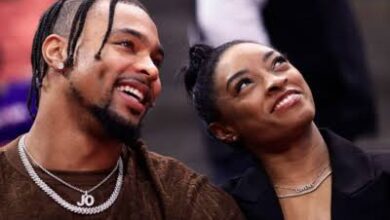Rafael Nadal’s golden racket: weight and value revealed
Rafael Nadal played two matches at the ‘Six Kings Slam’ in Saudi Arabia, putting on a maximum effort despite a very precarious physical condition. The Spanish legend – who had not played a match since the Paris Olympics this summer – was defeated in two sets by both Carlos Alcaraz and Novak Djokovic.
The 22-time Grand Slam champion had a great time and was able to greet the fans, thanking them for the support they showed throughout his career. Rafa recently announced his decision to retire from the Davis Cup Finals in Malaga next month. The 38-year-old Manacor has done his best to return to the top level, but his body no longer responds as it would need and the results obtained in 2024 are emblematic of his current difficulties. The 14-time French Open champion has made history in this sport and cannot be content with a second-tier role, which is why his decision to retire seemed right to everyone.
Nadal will try to help his Spain team in Malaga in November, but it’s clear that the team’s fate will be in the hands of four-time Grand Slam champion Carlitos Alcaraz. Rafa will be able to help especially in doubles, where his experience is able to make the difference. The ‘Six Kings Slam’ was supposed to be the penultimate event of Rafa’s legendary career, who does not seem intent on adding more tournaments before the Davis Cup Finals. “I will miss everything, almost 20 years of career. I played in the most beautiful places in the world, those I dreamed of as a child. I wanted to become a professional and I have fulfilled my dream. I thank my team and the tennis family. I feel lucky”.
“I was very lucky, I always had the feeling that they loved me a lot in all the tournaments I have participated in my career. It’s hard to describe, but the energy and personal satisfaction you feel when you feel people support is something very special, I can’t thank everyone enough”, Rafael Nadal expressed his gratitude after the wave of affection he received in Riyadh at the Six King Slam.
A golden racket
In addition to the rich financial compensation for his participation in this exhibition tournament, the Spanish champion was also awarded a valuable object, as recognition of his legendary career. A full golden racket weighing 3 kg, worth about 250 thousand euros. A generous gift from the oil lords certainly appreciated by Rafa, which will probably be kept together with his 22 Grand Slam titles.
Only the Davis Cup Finals between Rafael Nadal and the final retirement from competitive tournaments remains. About the future and new life without tennis: “It will be a big change in my life. I need time to decide what I want to do in the future, since I was a child I lived as a professional athlete. Now I focus on the preparation for the Davis Cup and enjoy these last months as a professional. I don’t want to put pressure on myself, I’ll just need time to think about it”, he concluded in an interview with the media.
In addition to his extraordinary talent, Nadal’s skill that made him so special was his rejection of defeat and his ability to play every point as if it were the last one of his life. The era of the Big 3 is almost over, although Djokovic will be active again next year. The Serbian ace is the youngest of the three and still looks competitive, although he has not won a single title this year (except for the gold medal at the Paris Olympics).
Guy Forget praises Rafa
During an interview with L’Equipe, former ATP ace Guy Forget paid tribute to the Spaniard: “We can say that Federer was technically the most accomplished, the most incredible when he played well. We can say that Djokovic is the best returner, the player who misses the least, the most difficult to counter, but for me, the best mentally is Nadal. In this respect, I place him above Roger and Novak.
When some other legends could show signs of irritation and even give up during the match, I never saw him lower his head or admit defeat. Until the last point. And even when you compare him to Jimmy Connors or Lleyton Hewitt — monsters of pugnacity, resilience — he was way above. It was probably his greatest strength, this ability, whatever his physical problem, the score, his opponent or the surface, to constantly say to himself: ‘I’m going to find the solution and I’m going to get through it’. I don’t know where he got this strength from.”



